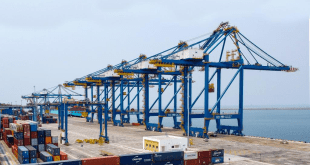Biometric Update | Cameroon’s President Paul Biya has asked his Minister of Economy, Alamine Ousmane Mey, to source funding to the tune of €50 million for a video surveillance project with live facial recognition.
In a decree signed recently, Biya authorized the minister to sign a loan agreement with the Hong Kong branch of Banco Santander for the sum of €50,000,000 (US$54M).
“The Minister of the Economy, Planning and Regional Development, is authorized with power of delegation, to sign with Banco Santander, Hong Kong Branch, a loan agreement for an amount of €50 million, or approximately CFAF 30.8 billion, to partially finance phase two of the project to extend the Intelligent Video Surveillance system nationwide,” the President said in the decree signed on March 13.
This project, overseen by the General Delegation for National Security (DGSN) — the National Police — is part of the broader “Cameroon Smart Cities” project which authorities say is meant to assist law enforcement agencies in combatting criminality in the country’s major towns and cities. The DGSN describes the project as “a major asset for our country,” but civil society groups have raised concerns related to data privacy and human rights.
The first phase of the project has seen the construction and inauguration of two command and control centres for video surveillance in the country’s two largest cities. The main command centre, located in the capital Yaounde, was inaugurated in 2019, while the Annex facility, based in the economic capital Douala, was commissioned in June last year by Ferdinand Ngoh Ngoh, the Secretary General at Cameroon’s presidency.
The planned extension of the project, for which funding is being sought, will take the number of CCTV cameras installed in public places to more than 3,000, over 95 base stations and beyond eight regional centres.
The overall objective is to install at least 5,000 CCTV cameras in all the ten administrative regions Cameroon, and link them to 17 command rooms. This second phase will involve the construction of command and data centers in each regional capital, installation of base stations, and the inter-connection of police services.
DGSN officials have explained that the CCTV cameras are set to instantly capture all forms of crime, traffic accidents, disruption of road traffic, or any other form of urban disorder likely to trigger rapid and appropriate intervention by the police.
Chinese firm Huawei and Cameroon’s national telecommunications company CAMTEL are technical partners of the project. Huawei has been involved in similar projects in other countries including Kenya, Mauritius, Zimbabwe and Nigeria.
 CameroonOnline.org Cameroon news, Actualité Camerounaise, live Web TV & Radio, World News and a lot more
CameroonOnline.org Cameroon news, Actualité Camerounaise, live Web TV & Radio, World News and a lot more



